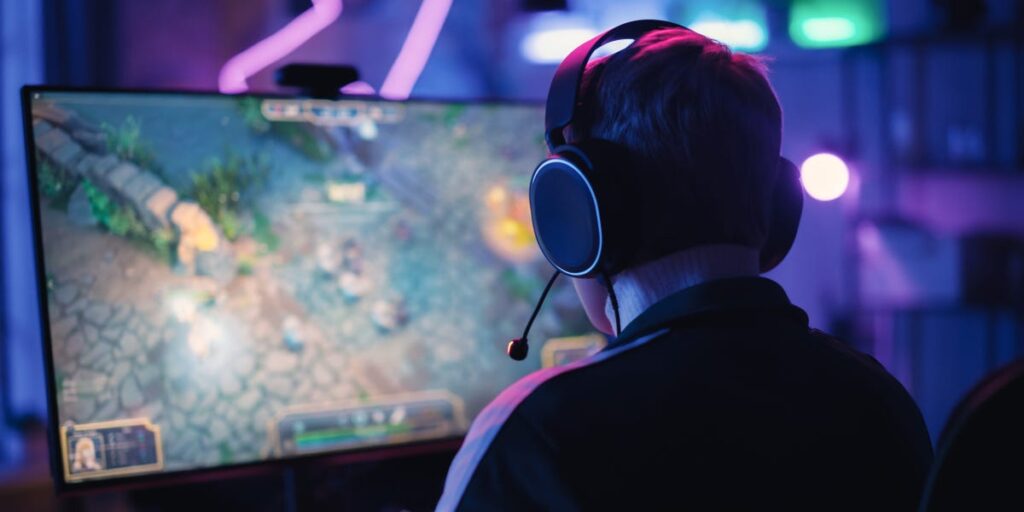This as-told-to essay is based on a conversation with Sherry Williams. It has been edited for length and clarity.
My sons, Taylor and Tyler, started playing video games when they were 5 and 6. Like most kids, they loved gaming and started playing a bit too much. They started rushing through homework in order to play. I’m an elementary school teacher, so that wasn’t going to fly. I made a new rule: the boys could only game on Fridays, Saturdays, and Sundays.
During COVID, we were all home together when the school sent me a notice that Taylor, who was a freshman at the time, was missing assignments. I couldn’t figure out how he was skipping class right under my nose. It turns out he was gaming when he was supposed to be doing school work.
At that point, I also took away his weekend gaming privileges. He ignored me, so I started hiding the Xbox under my bed and in other places that are still a secret to this day. Somehow, Taylor always managed to find the gaming system. At this point, he was just being disrespectful.
One day, I was so frustrated that I hurled the Xbox off my bedroom deck, and it crashed down from the second floor. Even then it didn’t break, so I asked my boyfriend to put the Xbox in his trunk where Taylor couldn’t get to it.
Taylor transferred to a school with an esports team
Two years later — when Taylor was a junior in high school — the boys transferred schools, mostly to play traditional athletics. Tyler plays football and basketball, and Taylor plays basketball. Both were hoping to leverage sports for college funding.
Taylor came home and told me the new school had an esports program. I had never heard of esports — or competitive video gaming — but at an open house, Taylor introduced me to the coach. He explained that colleges were starting to offer esports scholarships. Because of that, video gaming can now open up opportunities for students the same way traditional sports can, he said.
I was convinced, but I still had the rule that the boys couldn’t play video games during the week. I used that as leverage with Taylor: I would allow him to practice gaming during the week as long as he was prioritizing school work and being respectful. We were able to meet in the middle.
Taylor started winning prizes for his school and himself
With Taylor playing more, I wanted to learn about gaming. As I delved into this world, I learned that gaming can change cognitive function — but in a good way. It can increase problem-solving abilities and relieve stress. Some people even use video games for pain management.
I now knew that video games weren’t just a waste of time, but friends and family weren’t convinced gaming could have real benefits. Then, Taylor started winning awards.
His first win led to $20,000 in gaming equipment for his school. It was so much that the team shared it with two other local high schools. When Taylor became a national champion in 2023, he won prize money that he could use to pay for books and other expenses at college.
I’m convinced that video games can lead to success for kids like mine
Taylor will be a senior this fall, and he’s looking at colleges that have esports programs. One historically Black college, Johnson C. Smith University, even has an esports and gaming minor. For kids like Taylor, esports are so much more than games: they’re a real path forward and a chance to use something they’re passionate about to build success.
I’m a proud mom. I even use the streaming platform Twitch to watch games that Taylor has played as if they’re real sporting events. I’m even looking at starting a gaming club at the elementary school where I work because I’ve seen first-hand how powerful video games can be.
Read the full article here
















